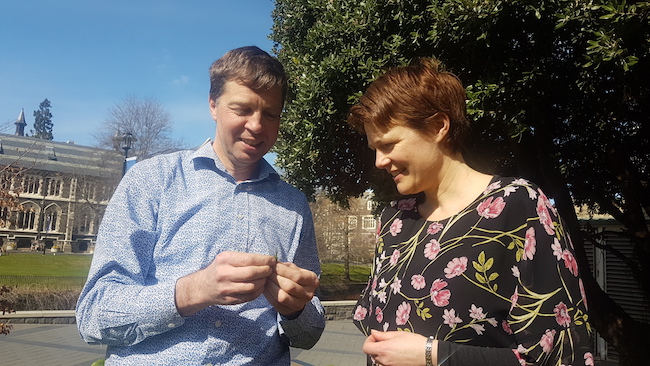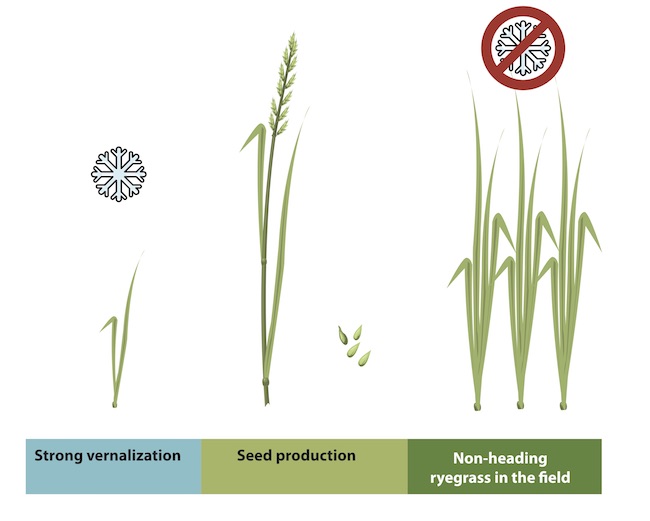Otago Biochemistry is celebrating this week after finding out that Associate Professor Richard Macknight and Dr Lynette Brownfield have successfully won funding from the Endeavour Fund for their project to improve New Zealand's most important source of food for cows and sheep: ryegrass.

Associate Professor Richard Macknight (left) and Dr Lynette Brownfield investigate a sample of grass from the University grounds.
Ryegrass is very good at feeding grazing animals in the spring when the plants are putting their resources into growing leaves. However, when ryegrass flowers, as it does every year through summer and autumn, the energy of the plants is diverted from making nutritious leaves into making not-so-nutritious flower heads and seeds, which in turn slows down the growth and productivity of the animals that eat the plants.
The Otago Biochemistry researchers have been given $1,000,000 over three years to look into ways of keeping ryegrass in 'leaf-growing mode', only allowing the grass to grow flower heads (and seeds) when it is given a specific signal, for example, exposing it to extreme cold. Such non-heading ryegrass will increase feed quality and improve land-use efficiency.

Schematic of ryegrass idea. Ryegrass exposed to extreme cold (left) is triggered into making flowers and eventually seeds (middle). Plants not exposed to the cold continue to concentrate on making leaves (right).
The Endeavour fund is administered by the Ministry for Business, Innovation and Employment, and is intended to support excellent research that could potentially transform New Zealand's future economic performance for the better.
Other research groups around the department will also benefit from this round of Endeavour funding as part of three other projects.
Professor Kurt Krause's group will provide structural molecular expertise on a large Endeavour Research Programme aiming to develop new compounds for treating viral infections. The programme is led by Professor Vernon Ward, Dean of the School of Biomedical Sciences at Otago and virologist in the Department of Microbiology and Immunology.
Dr Sarah Diermeier is an associate investigator on a Smart Ideas project headed by Dr Alex Gavryushkin (Department of Computer Science at the University of Otago). This project is aiming to make new computer-based tools to help researchers study evolutionary relationships across many areas of biology, including the accumulation of mutations in the cells of a body during a lifetime.
Dr Paul Gardner is also an associate investigator on a Smart Ideas project which aims to develop new computational tools, but in this case will study the genomes of horticulturally-important plants. This project, lead by New Zealand's Plant & Food Research Institute, intends to track down parts of the genomes that are responsible for the differences found between closely-related species.